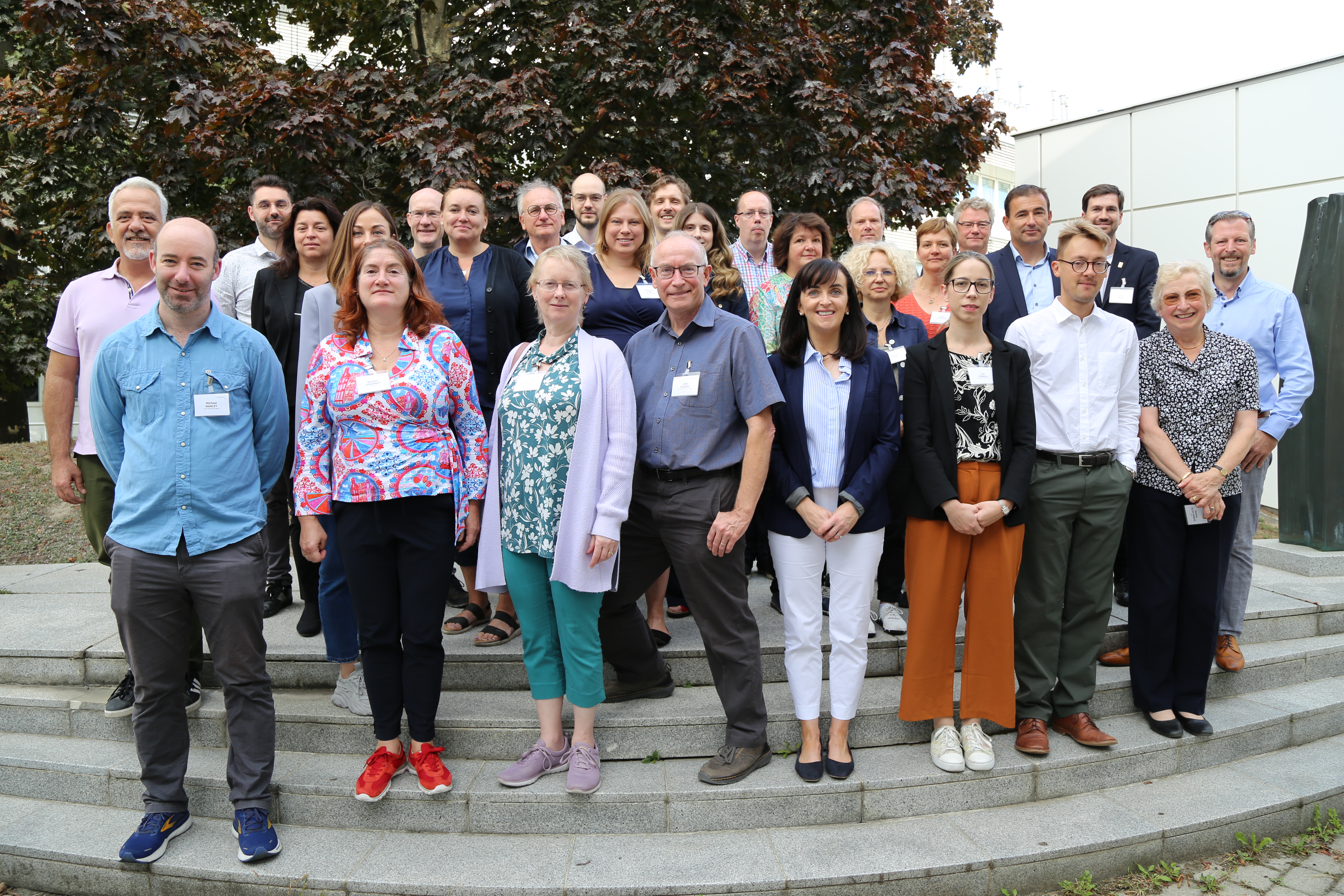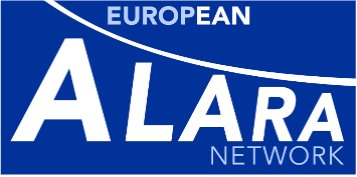EAN 20th workshop ALARA for interventional radiology & nuclear medicine
Vienna, Austria, 2-4 October 2023

Aims and objectives of the workshop
More than 10 years after workshop n°13 'ALARA in Medical Sector' and with regard to the novel issues identified in EAN Newsletter 48 (see p. 17) and 49 (seep. 9), the European ALARA Network would like to focus workshop n°20 on the application of the optimization principle in interventional radiology and nuclear medicine (new radiopharmaceuticals).
The programme will develop in 4 sessions:
The programme will develop in 4 sessions:
- Setting the scene and ALARA challenges identified in the fields of interventional radiology and new radiopharmaceuticals;
- Tools for ALARA;
- Focus on (new) radiopharmaceuticals;
- Education and training, culture.
The programme committee endeavours to bring the major European players - such as PODIUM, EFOMP, IOMP - the professional medical associations representing the practitioners, manufacturers and experts on the stage to provide insightful keynotes for the discussions in working groups.
As traditional, a significant part of the EAN Workshop will devoted to discussions in Working Groups (each participant can participate in one Working Group, to be selected at the registration). The (provisional) topics for discussion by the Working Groups are:
- The challenges for the optimization of patients AND workers in interventional radiology;
- What are the ALARA tools available in IR? Usages and usability?
- What are the elements of a good ALARA culture in (nuclear) medicine?
- Technical developments in nuclear medicine: how to instil RP from the outset?
The workshop conclusions and recommendations aims to summarise the main points of the presentations and the discussions held during the Working Groups.
The workshop was kindly hosted by the Austrian Ministry of Public Health (AGES) at the Vienna premises.

© AGES
Programme
- 'ALARA for interventional radiology & nuclear medicine' programme and practical information (Programme Committee)
Presentations
Session 1 - Setting the scene and ALARA challenges in Europe (Chairs: Mr. S. Andresz & Mrs. Julie Morgan)
- Introduction to the workshop (Mr. S. Andresz, CEPN France; Julie Morgan UKSA, United Kingdom)
- IAEA activities on RP in interventional procedures (Mr. O. Holmberg, IAEA, Austria)
- EFOMP & ALARA (Mr. A. Rogers, EFOMP)
- ALARA in medical application of ionizing radiation - the HERCA workgroup on medical application experience (Mrs. B. Godthelp, ANVS, The Netherlands)
- The Good, the Bad and the Ugly in nuclear medicine (Mrs. E. Reeves, UKHSE, United Kingdom) [restricted]
Session 2 - Tools for ALARA (Chairs: P. Allisy-Roberts & Andy Rogers)
- Medical staff exposure and monitoring in interventional practices (Mr. P. Ferrari, ENEA-RP Institute, Italy)
- Personalized nuclear medicine imaging and radionuclides therapy - A medical physicist perspective (Mr. K. Baete, University Hospital Leuven, Belgium)
- Feedback from a busy interventional radiology departement - Focus on good practices (Mrs. N. Bergans, KU Leuven; University Hospital Leuven, Belgium)
- Computational dosimetry as a tool to optimize staff RP during interventional procedures (Mr. F. Vanhavere, SCK CEN, Belgium)
- Evaluation of the performance of shielding protective equipment in interventional procedures: results from the MEDIRAD project (Mr. F. Vanhavere, SCK CEN, Belgium)
- Current technologies reducing dose in IR (Mr. A. Rogers, Nottingham University Hospitals/NHS, United Kingdom)
- Managing occupational and patient dose in an integrated manner (Mrs. H. Bosmans, University Hospital Leuven, Belgium)
- Introduction to the working groups (Mr. S. Andresz, CEPN)
Session 3 - Focus on (new) radiopharmaceuticals (Chairs: Mr. N. Stritt & Mr. S. Andresz)
- Promising radionuclides for radiopharmaceuticals in the future (Mr. D. Müller, Seibersdorf Lab. Austria)
- Extremities doses in nuclear medicine - Influence of new radionuclides (Mr. R. Kolaard, NRG, The Netherlands)
- The management of new radionuclides in medical trials: radiopharmacy perspectives (Mrs. R. R. Membrive, Clinica Universidad de Navarra, Spain)
- Operational radiation protection at MEDICIS - A CERN facility for the production of non-conventional isotopes for nuclear research (M. Widorski, CERN, Switzerland)
- Radiation protection for new radiopharmaceuticals in nuclear medicine (Mr. C. Michel, Radiation Protection and Nuclear Safety Institute, France)
- Emerging radioisotopes in radiopharmaceuticals research - a preclinical perspective (Mrs. V. Rosecker, King's College London United Kingdom)
- Upcoming radiation protection issues with new radiopharmaceuticals drugs (Mrs. S. Terry, King's College London, United Kingdom) [restricted]
Session 4 - Education, training and culture (Chairs: Mrs. C. Schieber & Mr. S. Economides)
- HERCA E&T WG on radiation protection (Mr. S. Economides, GAEC, Greece)
- European Training and Education for Medical Physics Experts in Radiology (EUTEMPE-RX) (Mrs. H. Bosmans, University Hospital Leuven, Belgium)
- Radiation safety culture in interventional radiology - perspective from the UK and the IRPA TG (Mrs. C-L Chapple, Newcastle Hospital, NHS, United Kingdom)
- Development and framework for the continuing training of medical professionals on patient's protection (Mrs. K. Tack, Nuclear Safety Authority, France)
- Receptivity to expert advice, education and training is highly dependent on situational and cultural context (Mr. H. Wilkins).
Session 5 - Working Groups Reports
- The challenges for the optimization for patients and workers in interventional radiology (report from Working Group 1)
- What are the elements of a good ALARA culture in medicine? (report from Working Group 3)
- Technical development in nuclear medicine: how to instil RP from from the outset? (report from Working Group 4)
- Preliminary conclusions and recommendations (J. Morgan, UKHSA, United Kingdom; S. Andresz, CEPN)
